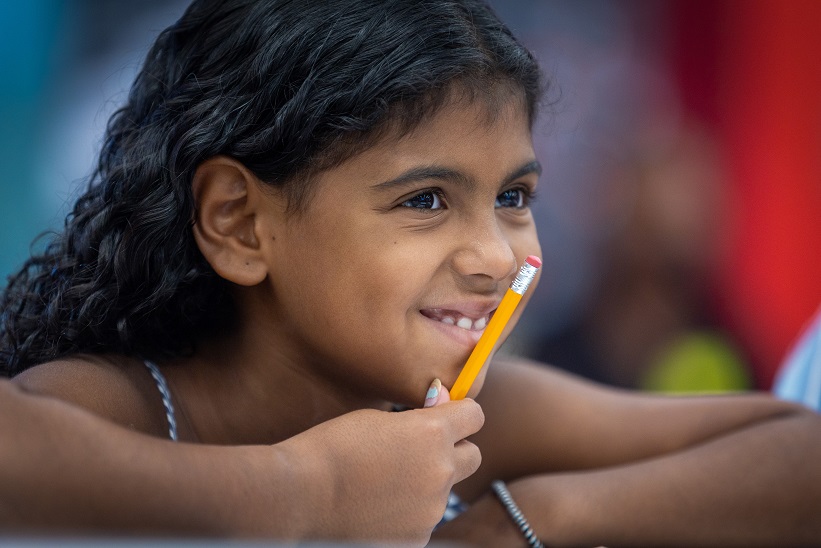
MakerGirl Inspires Girls to Say Yes to STEM
MakerGirl believes that girls can excel in STEM and use these skills toward a brighter future. But first you have to excite their interest in STEM. To that end, MakerGirl has set up a three-level program that imparts STEM knowledge to girls early on—before they lose interest in STEM, as too many girls, do.
It is nearly impossible today to compete in the workplace without a good grounding in STEM skills. Our small grant award-winner MakerGirl awakens girls to the magic of STEM, setting them on the path to success in high tech and other careers involving STEM. We put some questions to MakerGirl Manager of Programs and Events Madeline (Maddie) Brown to find out more about this work:
Kars4Kids: We usually begin our small grant interviews asking about the grantee’s demographic. But when it comes to MakerGirl, we found that you serve girls from every sector—so we’re going to work backward, by asking about your summer program, MakerGirl Goes Mobile. What is the idea behind this program? Who benefits?
Maddie Brown: The goal of MakerGirl Goes Mobile is to reach every area of the United States. Whether it’s a small town or urban city, we want every girl to have access to STEM education and resources. This summer 2023 we will be running our 5th MakerGirl Goes Mobile tour, focusing on the Midwest and Great Plains regions.
Kars4Kids: Who founded MakerGirl, and why?
Maddie Brown: MakerGirl was co-founded by Elizabeth Engele and Julia Haried Flesher when they were undergrad students at the Gies College of Business at the University of Illinois. In an entrepreneurship course their professor asked the question, “What bothers you?” This question sparked the idea for MakerGirl to inspire young girls to grow up to be strong and confident leaders in whatever career they may choose. The professor of that undergrad class, Noah Isserman, continues to be an incredible advocate at MakerGirl and serves on our co-founders on the MakerGirl board of directors, today.
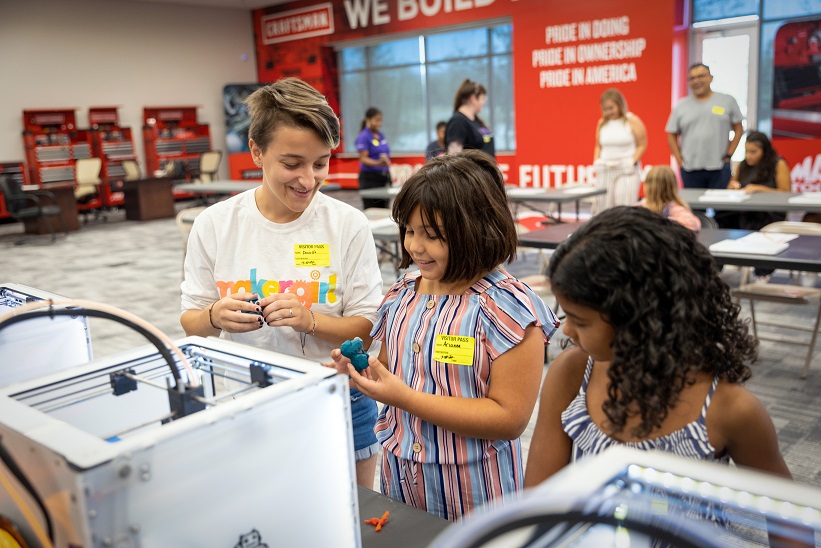
Kars4Kids: MakerGirl offers three levels of programming. Some of these levels overlap in terms of age range. It makes us curious, what went into the decision to break things up into three levels, and how did you set the age range for each of the three?
Maddie Brown: When MakerGirl started out, Julia and Elizabeth determined the target audience for Level 1 sessions as they found through research that girls start saying “No” to STEM around age 11. We aim to provide a safe, girl-centric environment to be exposed to and excited about STEM at an early age before girls might think “STEM is not for me.” Our philosophy is that when girls have female role models or mentors, they will feel more confident in saying “Yes” to future challenges! Our Level 1 Future Makers curriculum works best in the 7-10 age range, where the skills are an appropriate blend of challenging but basic, with an emphasis on FUN! We wanted to continue to expand the pipeline MakerGirl has established to go beyond the initial age range of 7-10, to create specialized levels of programming for girls from ages 11-14 and 15-22. This means that a girl can enter MakerGirl’s programs at age 7 and grow with MakerGirl all the way to becoming a university volunteer. With the introduction of the newest level of curriculum, the Inventive Minds and Project Engineers we will lead MakerGirl towards its three goals: educating 10,000 girls, establishing 10 MakerGirl Academies, and maintaining girls’ commitment to STEM involvement throughout their entire lives by the end of 2025. We have found that students of all ages (even our staff!) enjoy playing around with our Level 1 Future Makers activities!
Kars4Kids: Let’s talk about the three levels of programming you offer. Level 1 is for younger girls, right? Can you give us an overview of Future Makers? What, for instance, is Tinkercad?
Maddie Brown: Level 1 Future Makers is all about three major parts: 1) introduction to 3D printing 2) learning how to use basic CAD design skills and 3) learning about famous women in STEM and sharing about the students’ designs. TinkerCAD is an online educational and kid-friendly design tool that gives students use their imagination to design without limits!
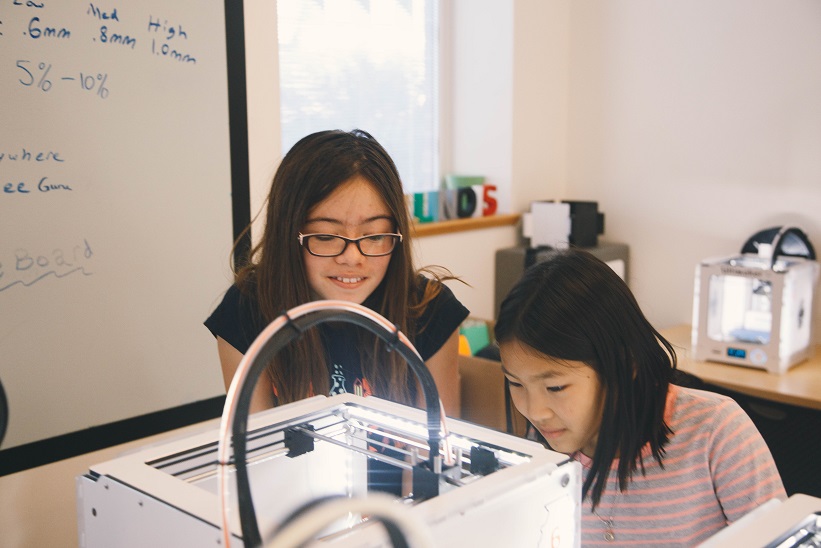
Kars4Kids: It looks like the virtual sessions are shorter than in-person sessions. Can you explain? Is it a time management thing?
Maddie Brown: When we are running an in-person session we like to have plenty of time to welcome the students into the space at the beginning of class, show them around 3D Printers and interact more closely with the technology, and allow time for parents to join in for the last 15 minutes of show and tell! We try to maintain as much of this as possible in a virtual setting, but it typically takes less time due to the nature of doing demonstrations and show-and-tell via Zoom. In virtual sessions, we give our students up to 24 hours to keep working in the TinkerCAD classroom after the session ends, so students actually have more time to practice and perfect their design.
Kars4Kids: Okay, on to Level 2, Inventive Minds. Can you describe it for us? Does it build on the skills learned in Future Makers?
Maddie Brown: Our level 2 offering, Inventive Minds, is a five-session project-based course that is approximately 90 minutes in duration per session. We teach MakerGirls the importance of articulation and iteration when discussing ideas and concepts while going through the engineering design process. They build upon their CAD skills by designing and creating their very own Game Board, including designing a theme, game rules, and 3D printing game components using TinkerCAD!
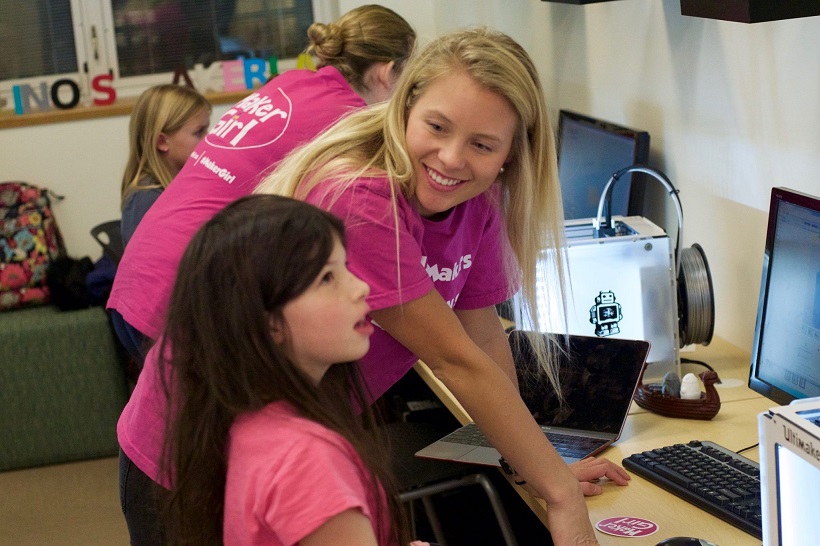
Kars4Kids: Reading the description of Level 3 Project Engineers left us impressed that it really is next level, so to speak. It’s like lift-off: they’re ready to be entrepreneurs—even if they are still in school. But what happens after the girls turn 14? How will they stay motivated to continue to use the skills they learned?
Maddie Brown: After students graduate from Level 3 Project Engineers, we strive to foster STEM knowledge and growth as a lifelong pursuit. That’s why we offer high school and college students the opportunity to join MakerGirl as ChangeMakers – our student volunteers! ChangeMakers run all our Level 1 Future Makers sessions. We love seeing our MakerGirls grow up passionate about giving back to younger generations. ChangeMakers are given unique professional development opportunities to work on MakerGirl special projects; learn the ins and outs of running a nonprofit organization; participate in Q&A sessions with sponsors and corporate partners; go on the trip of a lifetime with MakerGirl Goes Mobile; or even join our team as a part-time intern! Many of our ChangeMaker alumni credit their experience with MakerGirl as a key step in their career path.
Kars4Kids: MakerGirl has a great website, and that makes sense, because you teach design. It’s a great way to showcase what girls can do. Was that part of your thinking in creating the website? Did you design it in-house, perhaps?
Maddie Brown: Our ChangeMakers (high school and university students) who teach our sessions are major contributors to our website. We have had many ChangeMakers take on the website as a volunteer project, this allows them to learn website design and help best showcase our programs, mission, and our impact to our supporters. This has allowed us to further our dual purpose of not only impacting the young MakerGirls (7-14 years old) but also the ChangeMakers (15-22 years old).
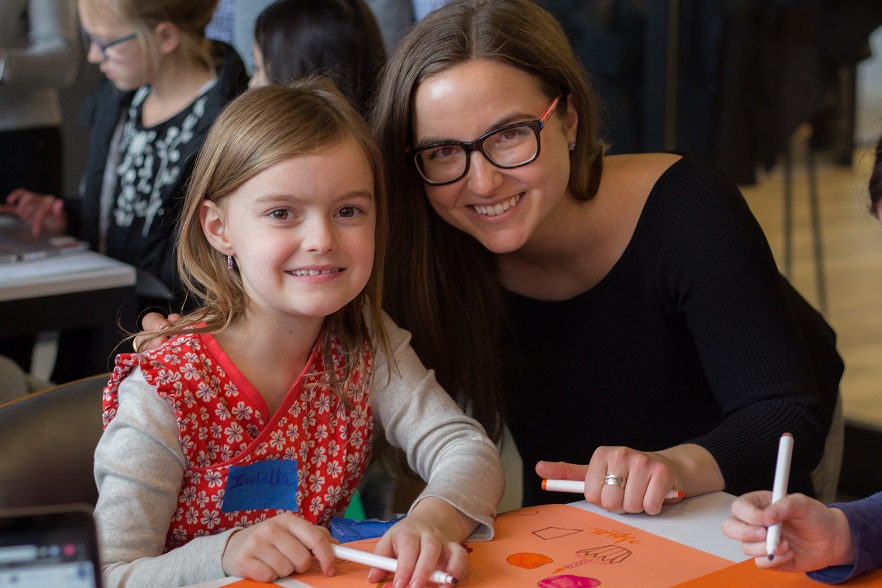
Kars4Kids: What’s next for MakerGirl?
Maddie Brown: MakerGirl’s big goals for 2023 include successfully running our 5th MakerGirl Goes Mobile trip, running more in-person sessions with our University of Illinois and Illinois Wesleyan University MakerGirl Academies, and educating 1,000+ girls this year! We are always looking for ways to expand our programs, add new curriculum, and grow our team!